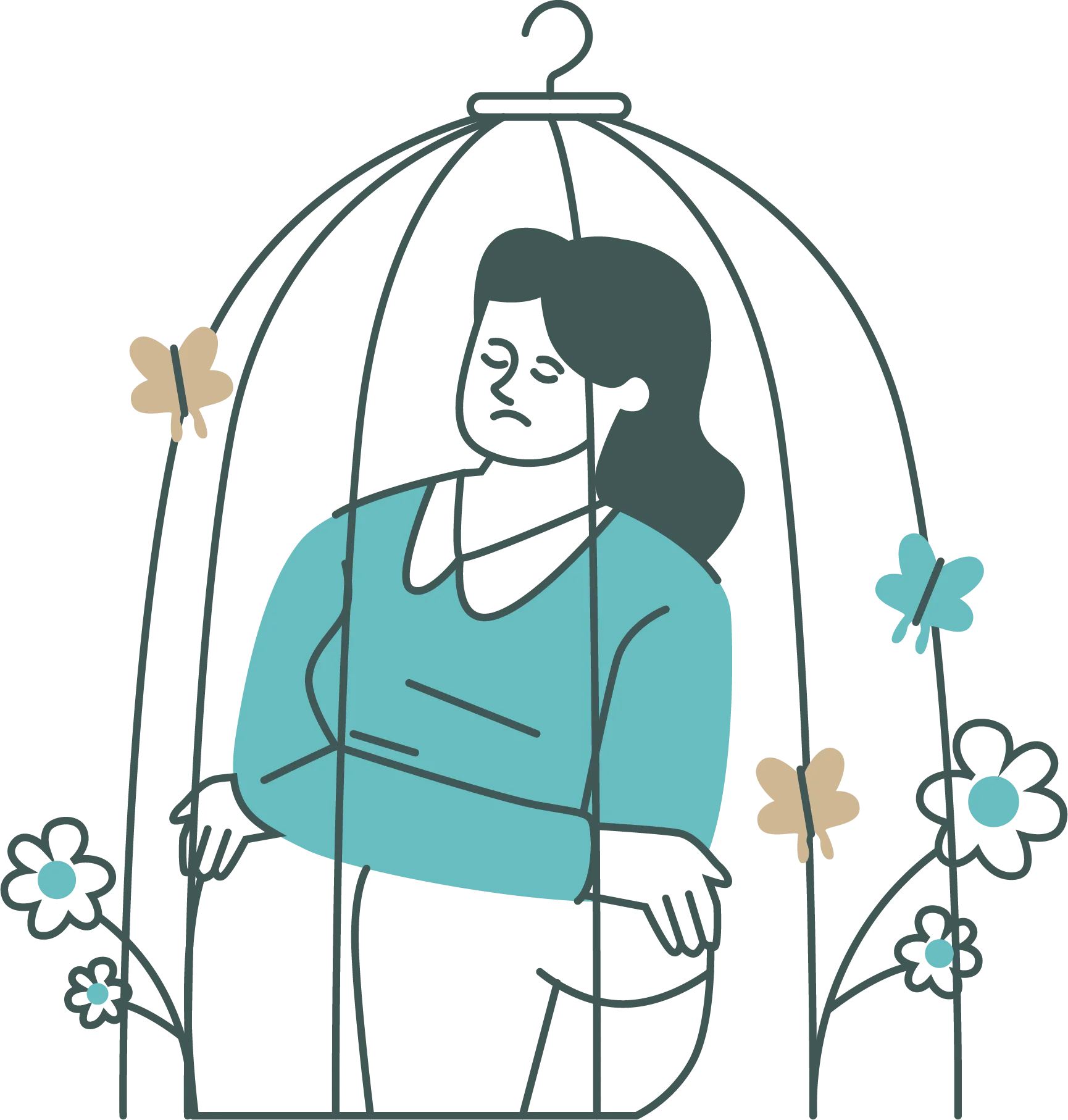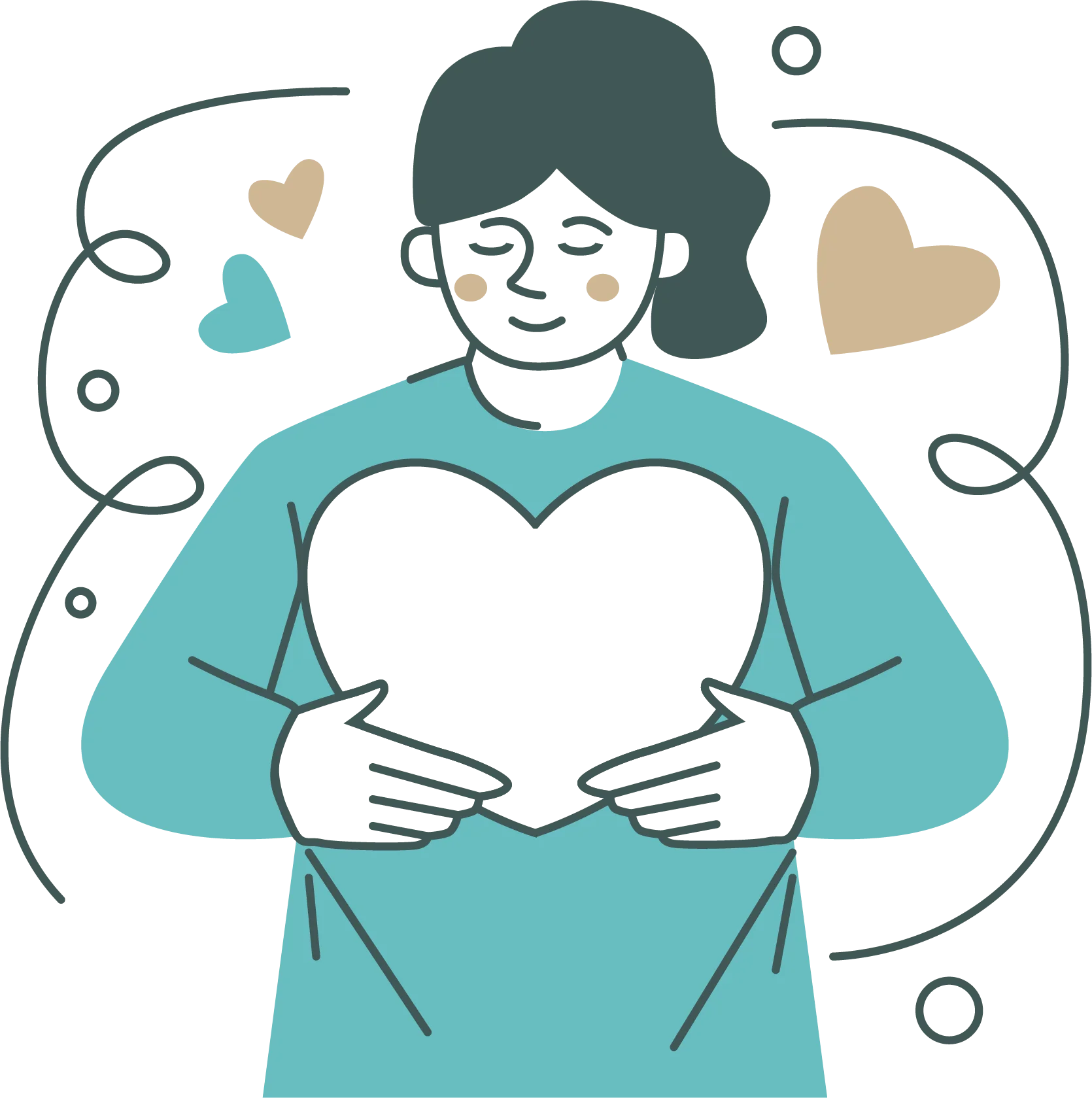Depressive Disorders
If you are living with depression, you are not alone. Depression can affect anyone, regardless of age, gender, or background.
The good news is that depression can be treated. With online management for depression, you can access caring, professional help from the comfort of your own home.

What is Depression?
Depression is a mental health condition that impacts people of all ages, genders, and backgrounds. More than feeling sad or having a bad day, depression is a persistent condition characterised by a severe low mood or a loss of interest in activities once found enjoyable. This disorder can interfere with daily life, relationships, and physical health, making early recognition and treatment essential.
Let us Guide You on Your Health Journey
Depression Symptoms
Depression displays a range of emotional, physical, and behavioural symptoms, which can vary in intensity from person to person.
Common depression symptoms include:
- Persistent feelings of sadness, emptiness, or hopelessness.
- A lack of motivation or enthusiasm for activities that were once enjoyable.
- Intense feelings of guilt, worthlessness, or self-blame.
- Difficulty concentrating or making decisions.
- Thoughts of death, dying, or self-harm.
- Changes in sleep patterns, such as insomnia or sleeping excessively.
- Changes in appetite or weight, either loss or gain.
- Fatigue or noticeable lack of energy, even after minimal effort.
- Physical pain, such as headaches or stomach aches, without a clear medical cause.
- Withdrawal from friends, family, or social activities.
- A decline in performance at work or school.
- Engaging in risky or self-destructive behaviours.
Causes of Depression
Depression can be caused by a range of biological, psychological, and environmental factors:
- Biological: Genetics, neurotransmitter imbalances, chronic illnesses, and hormonal changes like pregnancy or menopause.
- Psychological: Low self-esteem, sensitivity to criticism, overthinking, or trauma from adverse experiences.
- Environmental: Stressful life events, social isolation, substance abuse, or lack of support networks.

How Depression Affects Everyday Life
Depression does not just affect how you feel—it can touch nearly every part of your life, often in ways that are not immediately obvious to others. Some common ways depression can affect everyday life include:
Why Seeking Help Matters
You do not have to “tough it out” alone. Depression is highly treatable with the right support.
At Altitude Mind Clinic, we provide support for depression in remote areas across Australia. We use evidence-based treatments, such as Cognitive Behavioural Therapy (CBT), which can help you manage negative thoughts, build coping strategies, and regain a sense of control. For some, medication may also be recommended, depending on individual needs.
Reaching out for help is a brave and important step. Early intervention often leads to better outcomes, but it is never too late to start. Seeking support is not a sign of weakness—it is a sign of strength and self-respect.
Benefits of Telehealth for Depression Support
At Altitude Mind Clinic, we specialise in treating depression online through secure, confidential telehealth appointments. We know that travelling to appointments is not always practical, especially for those living outside major cities, juggling busy schedules, or feeling too unwell to leave home.
Benefits of choosing Altitude Mind Clinic’s telehealth mental health support include:
- Convenience: With online management for depression, there is no need to travel to an office. Whether you are in a rural area or simply do not feel up to leaving home, you can access management wherever you are, making it easier to prioritise your mental health.
- Flexibility: We understand that life can be busy and unpredictable. That is why we offer flexible appointment times, allowing you to schedule your appointment at a time that fits your routine—whether early, late, or during a break from work or school.
- Comfort: Attend your appointment in a setting where you feel most comfortable—whether it is your living room or bedroom. This familiarity can help you feel more at ease, making it easier to open up and engage in your sessions.
- Privacy: Telehealth mental health support offers the privacy you need in confidence, without the concern of running into someone you know or feeling self-conscious. It is a discreet way to access the help you deserve.

Many people find it easier to open up about sensitive feelings in an online setting. Our goal is to make getting depression help from home as easy and reassuring as possible.
Take the First Step Towards Finding Focus and Peace in Your Everyday Life